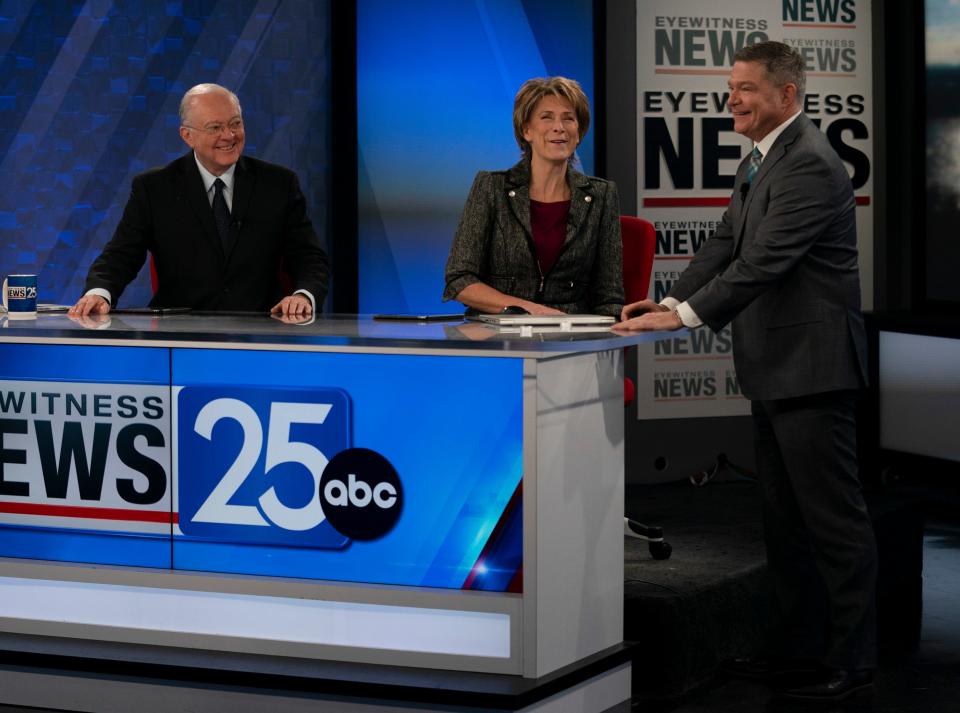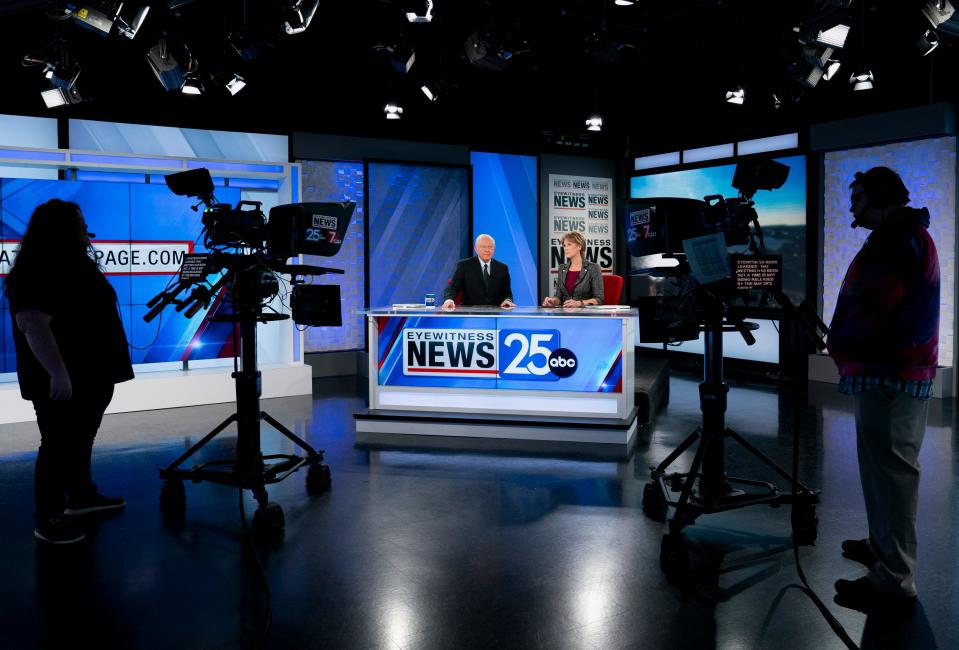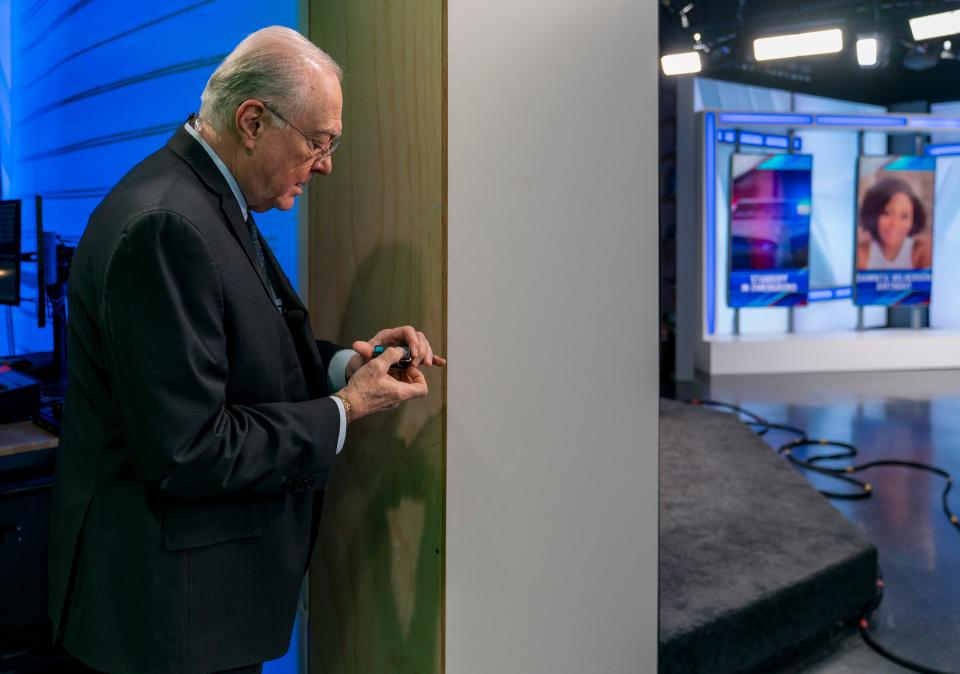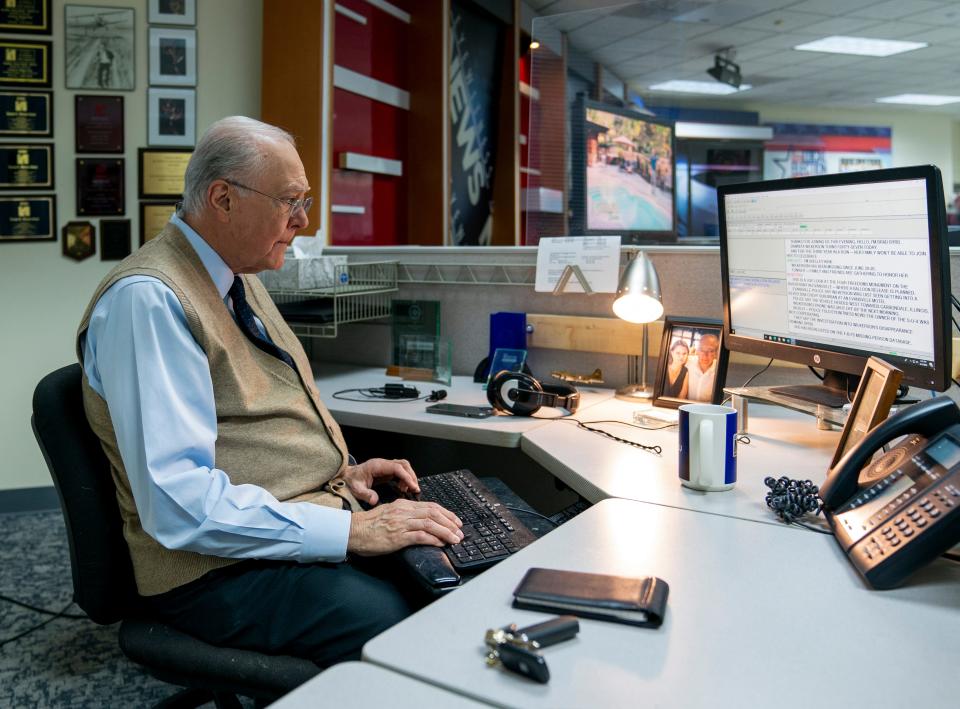'Never get into a rut': Brad Byrd looks back on 45 years in Evansville journalism
EVANSVILLE – Working 45 years at one job is not something most people can say they've achieved. But Brad Byrd is different.
The longtime WEHT anchor marked that milestone at the start of the new year. And he's been in journalism even longer, starting at the WLBC radio station in his hometown of Muncie, Indiana, when he was 18.
Byrd got to the Evansville market after receiving a job offer from WFIE to start working night shifts 45 years ago. Back then, he was working at WANE in Fort Wayne, Indiana.
In his career, he's been able to cover presidential inaugurations for George H.W. Bush and Bill Clinton, and he's delved into international coverage of local Peace Corps workers who traveled to Krakow after Poland's emergence from the Soviet Union.
He's also been there for every big Evansville news story, from the University of Evansville plane crash to the COVID-19 pandemic.

In 2018, he did a report that marked the 50th anniversary of the assassination of Martin Luther King Jr. that nearly brought his career full circle.
"That era in the 1960s was just what got me hooked on being a reporter and following the principles of getting it right and putting yourself in the shoes of the people you're reporting on," he said.
The Courier & Press recently sat down with Byrd to talk about his four-decade career.

Q: What made you go into journalism?
A: I wanted to be a witness to the history around me. I was a teenager in the 1960s and it was an incredible decade of civil unrest – the Vietnam War, assassinations. And it really was a turning point in our country's history. ... I was just fascinated with being able to have the opportunity to report on stories.
Q: If not journalism, what field would you have gone into?
A: Well, I was a thespian in high school. But as a kid, I had a very positive childhood and I loved adventure stories. A turning point started with (the John F. Kennedy and Richard Nixon presidential) debates (in 1960).
The Kennedy assassination changed everything. Kids learning about that, we were in school, went home and that was the first true wall-to-wall coverage of a news story. Kennedy's assassination coverage was continuous for days with all the twists and turns.
Q: How does journalism differ now compared to when you first started out?
A: The technology. It's fantastic how we can get the stories out. Reporters and journalists are multi-tasking to the point where we are just really cranking stuff out and we have to be very careful. I'd rather be second and right, instead of first and wrong in reporting, the rush to get stuff on.

Q: Do you think there's a way to bridge the gap between older and newer reporters?
A: Communication. I'm all for texting but there is nothing ... like face-to-face communication. Sometimes I would much rather, if I had my choice, pick up the phone and talk to someone. I think texting is kind of like emailing.
Q: What journalists did you find really inspirational?
A: Edward R. Murrow. Peter Jennings. Ted Koppel created a whole new niche of reporting with "Nightline." Barbara Walters, who just passed, I admired her more so for the interviews that she got. Bob Woodward and Carl Bernstein, everybody was against them, even the network. Like you're barking up the wrong tree. They broke the political story, I think, of the century (in Watergate).
Q: What does a typical news day look like for you?
A: There is none. One thing I've learned is you never get into a rut. Things can change so quickly and we haveall types of stories out there. I would much rather be busy covering something that truly has an impacton people's lives that's breaking than getting into that rut.

Q: What makes a person successful in this field?
A: The most important thing is to listen to the people you're reporting on. Don't go into a story pre-producing it, before you've even witnessed it because so many things can change. That to me is what makes a perfectjournalist: someone who will take the time to listen and take a deep breath. Ask questions that your viewers and readers are asking. Sometimes they won't be answered. That's just part of being a reporter.
Q: Any advice for young journalists?
A: If you've got it in your heart that you want to be a reporter, if you want to be a witness to events, absolutely pursue it. You're going to be frustrated at times. But as long as you had that feeling in your heart, stay with it. If you're miserable, if you clock-watch, you probably should seek another career or look at something different. And there's nothing wrong with changing your mind.
Note: The story has been corrected on April 10, 2023, to reflect that Byrd received a job offer from Evansville's WFIE when he was a reporter at WANE in Fort Wayne, Indiana, in 1975.
This article originally appeared on Evansville Courier & Press: Evansville's Brad Byrd looks back on 45 years in local news

